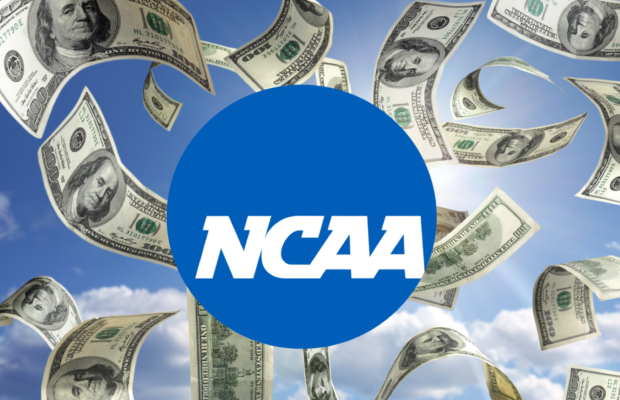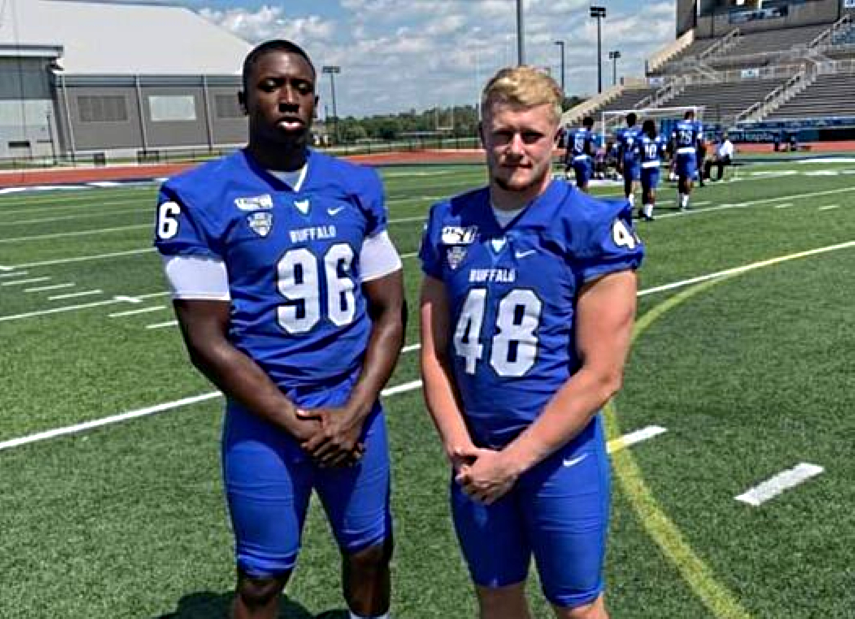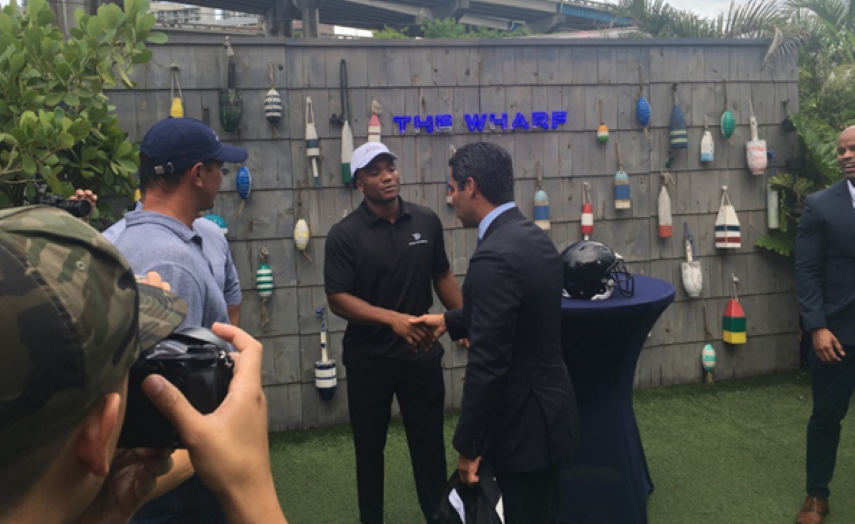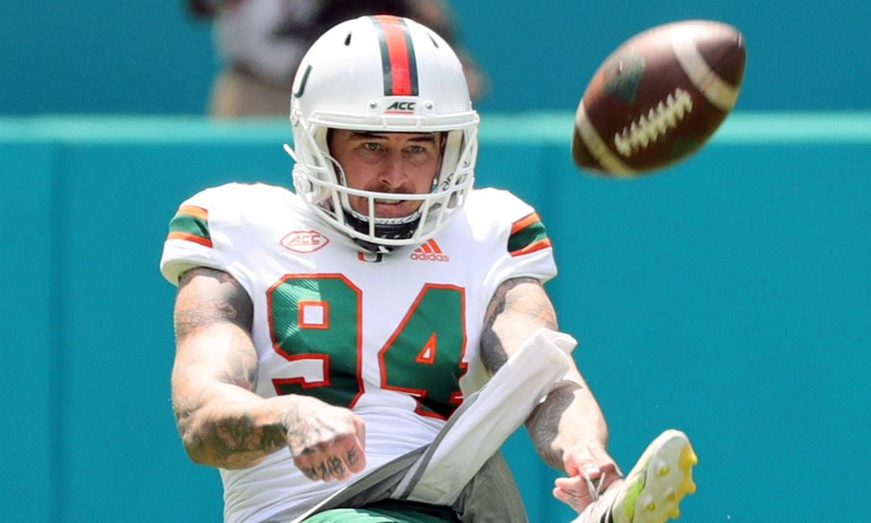NCAA Name, Image and Likeness Rules: How can international athletes navigate the unknown?

July 1 marked the first day of a major shift in NCAA policies regarding student athletes.
After years of dispute, the NCAA has ruled that student-athletes may now profit off of their own Name, Image, and Likeness (NIL) without compromising their eligibility. A unanimous US Supreme Court ruling on June 21st seemed to end the hotly debated topic as NCAA athletes’ new NIL rights opened up a previously untapped market for college stars and businesses alike.
Prior to that date, NCAA athletes who profited from their Name, Image, and Likeness would face harsh punishment from the NCAA, such as suspension and even a loss of athletic eligibility. Examples include Silas Nacita’s loss of athletic eligibility for accepting help for room and board, to future NFL star Chase Young’s suspension for receiving a small loan. College sports governing body made it impossible for student athletes to receive any compensation for their athletic related activities. While these athletes were allowed to continue their studies, their sports dreams could’ve been affected by any benefits seen as improper by the NCAA. It will be interesting to see how this NCAA ruling potentially affect online betting odds.
Needless to say, the change was widely praised and it didn’t take long for college football superstars to cash in. University of Miami quarterback D’Eriq King signed multiple endorsement deals netting him well over $20,000. More well-known athletes such as freshman point guard Hercy Miller (the son of rapper Master P) signed a deal for over two million dollars. The 19-year-old has yet to step on the court for Tennessee State but is already taking advantage of a rapidly emerging marketplace. As this new market develops expect more and more college athletes to cash in on their fame. This is only the beginning of what is sure to be a lucrative fall for college athletics best and most followed players.
However, it seems that not all student athletes can benefit.
For international student athletes, the situation is muddled to say the least. While the market will determine the price for big name college superstars, international student athletes are left wondering. These students are typically in the United States on an F1 student visa and according to US Department of Citizenship and Immigration, students under an F1 visa are only allowed to work a maximum of 20 hours a week. While the visa does allow for limited forms of income and full-time work outside of university semesters, it is unclear how an international athlete’s Name, Image, and Likeness fit into the immigration department’s definition of work.
Currently, international students make up 12.4% of all division one athletes in the NCAA. However, the number of international athletes has been rising year to year, up from 9.8% in 2014 all the way to over 12% in 2019. The college football scene has seen an influx of international players moving on as well. This year four Canadians were drafted in the 2021 NFL Draft, tying a record.. On the European front, the growth of the game has led to more opportunities for players to hop across the pond a chase their gridiron dreams, resulting in major programs like West Virginia, Michigan, TCU, Virginia, Colorado, Penn State, and Stanford to all have Europeans on their rosters. On special teams, Australian punters are seen at over 20 Division 1 programs including powerhouse programs such as LSU, Texas, and USC.
The punishment for failing to follow F1 visa rules can be harsh and could lead to deportation, hurting students not only immediately but also making reentry into the US a more difficult process in the future.
One idea that has been floated is that international athletes apply for the P-1A visa, which allows immigration for amateur athletes. The issues there lies in that the visa is defined as “Solely for the purpose of performing at a specific athletic competition,” according to the U.S. Citizenship and Immigration Services (USCIS). This would undoubtedly clash with not only university student responsibilities but the NCAA’s already compromised definition of amateurism.
Rob Seiger, an immigration lawyer for international professional athletes, commented on the potential fallout of the unknown for young international athletes in the new capitalistic NCAA landscape:
“That’s a huge potential mess,” Seiger said. “The federal government would similarly have an issue with that, where if you’re really coming over to play your sport and be paid, are you a professional athlete? Are you trying to bifurcate the employment visa structure? I think it can create a real problem because the government is pretty hard-core. Now you have these guys out there spending more time with the folks sponsoring them, I can see it opening a Pandora’s box on how the foreign student-athlete will be able to come over here.” (Via ESPN)
In response to the new NIL laws, some universities have strongly advised international students to proceed with caution. The University of Cincinnati released a document discouraging international student athletes from starting their own business and receiving compensation for personal appearances, autographs, private coaching, and endorsing any products.

French defensive end Jordan Avissey with German linebacker Fabian Weitz Photo: University of Buffalo Athletics
However, according to the same document international students may be able to profit from their likeness outside of the US. Yet, the university does advise them to consult an immigration attorney before doing so.
“An F-1 student-athlete may be able to sign autographs, make appearances, endorse products, provide lessons, etc. outside the United States provided such activities are in compliance with applicable Department of Athletics and NCAA rules and applicable federal and/or state law.” (University of Cincinnati)
Federal lawmakers left much information to be desired for players on the F1 Visa. Ohio Senator Niraj Antani was one of the main backers of the anti-trust bill, but when asked about how it would affect international athletes Antani commented “”That is a good question that I have not had as a discussion. But I will now.”
For University of Miami punter Luo Hedley, NIL business opportunities could be very lucrative after a viral 2020 season and a large social media following. However, given the uncertainty of the situation, the Hurricanes punter plans on playing it safe in this new unknown business landscape:
“I know a lot of the boys are really excited about it, and it’s great to give everyone here the opportunity to sort of build their brand. But as for me, I may not do anything. I’m just not too sure what I can or can’t do.” (via ESPN)
Similarly French defensive end Jordan Avissey who recently transferred to Bethune Cookman University is unsure of his next move.
“It’s too early to actually take a position on this as we, International athletes are still waiting for more clarification on the situation. I’m hoping that they understand the tremendous amount of International students participating in the different NCAA sports, and that they would be left to the side because of Visa issues and are missing all these new opportunities that can clearly change lives.”
As more and more NCAA stars sign deals, international athletes may have to be patient as their NIL opportunities and conflicting visa issues must be solved by the lawmakers on Capitol Hill. Unfortunately, for over 12% of NCAA athletes, they’ll have to wait for the federal government for answers or risk having their student visa’s revoked before they can profit in the same way as their US teammates.

